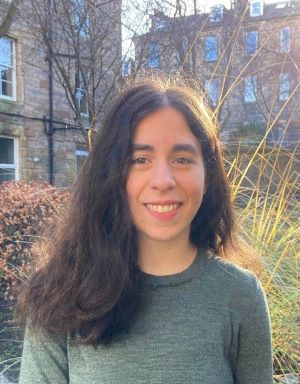Delighted to share our fourth blog as part of our PhD Horizons series from Laura Oliveira. Laura graduated from Edinburgh with a PhD in Neuroscience in 2020 and has since moved into working with financial data to prevent fraud. In this blog, Laura shares how her PhD has prepared her well for a career in data analysis and she also highlights the contrasts and similarities to her PhD research work.
Over to Laura…
I completed my PhD in Neuroscience at the University of Edinburgh in October 2020 and worked briefly as a postdoctoral researcher in the same lab after that. I have been working in banking as an analyst since June 2021.
My current role in Fraud Analytics, as a Senior Analyst at TSB Bank, involves analysing large amounts of data in order to propose solutions to prevent losses to fraud. This requires me to apply many of the skills that I developed throughout my PhD: from more technical aspects such as using technical software to manipulate and analyse data, to transferable skills such as problem solving, critical thinking and communication of results.
Contrasts and similarities to my PhD experience
The biggest contrast to my PhD experience is the pace. The timespan from start to finish of a given piece of work is a lot shorter, and I can see the impact of my day-to-day work in a much more immediate way, compared to the pace of academic research. I was also surprised by the similarities to my research experience: the way of thinking to go from an initial problem, to thinking of a solution and achieving the end result is very similar to what I would have to do in the context of my PhD research. In that sense, I feel my PhD has prepared me well for the role I am currently in and I am confident that this would be the case for other highly analytical roles.
Considering roles outside academia
I had not considered alternatives to academia when I started my PhD. However, throughout that time, I attended talks and events like PhD Horizons which allowed me to have a better awareness of what the potential alternative paths would be. I also attended workshops on coding/data analysis and was involved in teaching about statistics and experimental design; all of which made me realise that data analytics would be a viable alternative career which I would enjoy.
When I decided to look for roles outside academia, I was looking for greater job stability and work life balance. I looked for data analytics roles, as I felt this is a field where there are a lot of opportunities and room for career progression.
Parting advice…
I would say to current students to:
- Take advantage of events organised by the Institute for Academic Development (IAD), the Careers Service or your own school and ask lots of questions.
- Start using LinkedIn long before you actually need to apply for a job! Looking at job descriptions for different types of roles can be a good way of understanding what you find interesting; reach out to people if you want to know more about their job.
Thanks Laura.
Laura highlights the importance of LinkedIn. Our ‘Getting the most out of LinkedIn’ video provides great advice on making connections and creating an effective profile.
There’s still more PhD Horizons blogs to come! Use the PhD Horizons tag to search and find the blogs and other posts related to the event. We hope you enjoy reading these inspiring blogs.
View our PhD Horizons webpage for details of webinars and much more.


